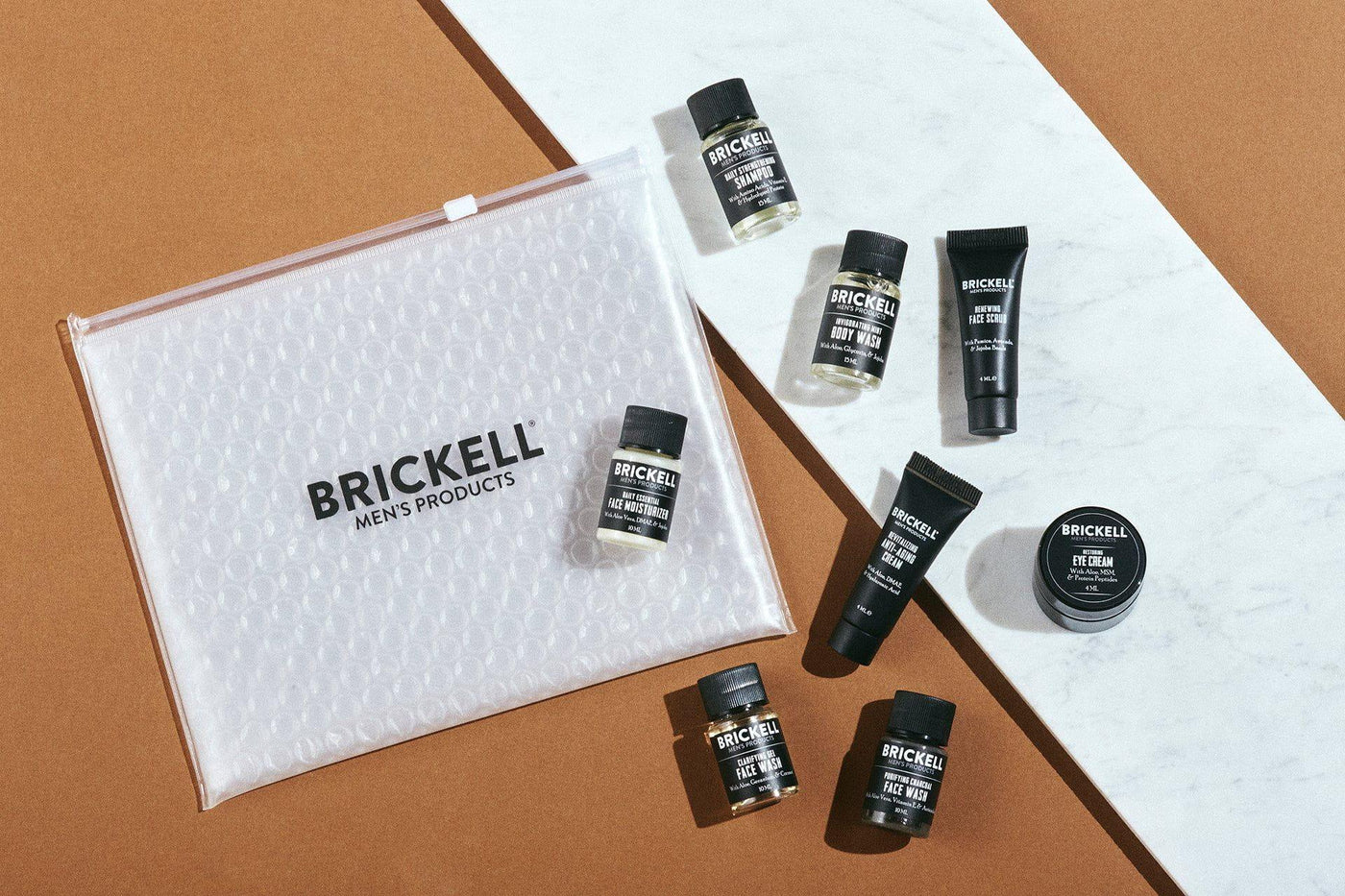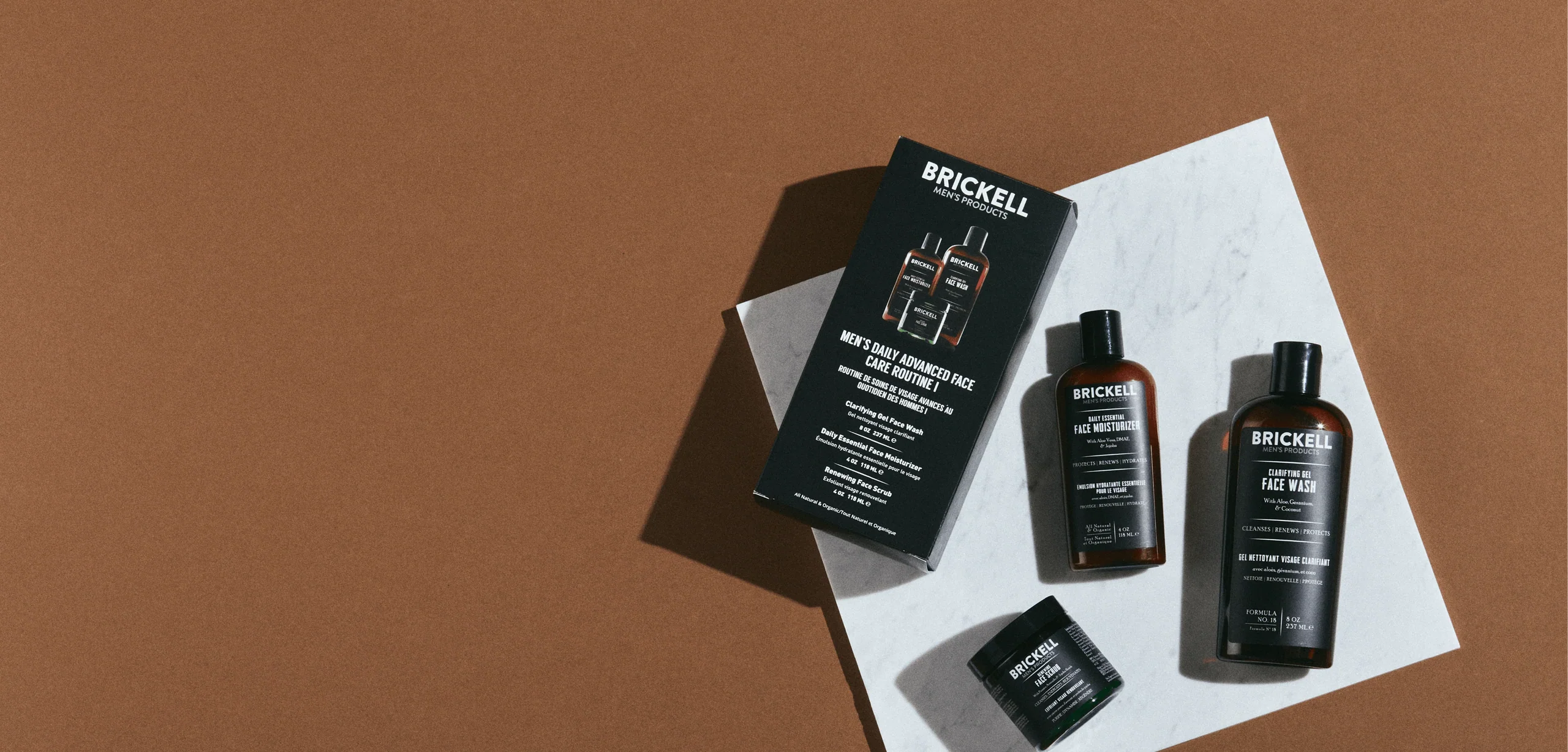The Grooming Manual
8 Easy Ways to Take Better Care of Your Scalp

Though you don’t often see your scalp (and therefore may ignore it), it’s the soil from which your hair grows - and a healthy scalp is crucial for healthy, flowing hair.
More specifically, a healthy scalp promotes good cell turnover and stronger hair follicles. For healthy hair, then, you need a healthy scalp.
But most guys don’t even think about their scalp care - and external factors like pollution, drying products, and UV exposure can cause some major damage. Here are eight easy ways to take better care of your scalp.
What You Need to Consider About Scalp Health
When it comes to taking care of your skin and your hair, you’re probably trying to do everything right. You’re using products that won’t cause breakouts. You’re not going nuts with the hairdryer or styling tools. And you’re probably even investing in more natural, safe products for these areas.
But, in all that, perhaps you haven’t thought about your scalp once (unless you got a sunburn or you’re experiencing an obvious scalp concern like dandruff). This lack of awareness can lead to bad habits and mistreatment - without you even realizing it.
Guys generally repeat unwitting mistakes that hurt the scalp, like using harsh surfactants, intense detergents, or washing too frequently.
What’s more, there are increased levels of sun exposure in the summer months, along with lots of air pollutants and other harsh external factors.
All of this damages the scalp, disrupting its:
- Moisture and natural oils
- Circulation
- pH balance
- Cleanliness
This is especially true since the scalp is more delicate than the rest of your skin. It also has a higher number of sebaceous sweat glands, sweat glands, hair follicles and a lower barrier function. That means more oil, less protection, and more sensitivity to possible irritants.
That’s why any mistreatment will quickly lead to discomfort, itching, dull or brittle hair, hair loss, and more. Unchecked UV damage can even cause melanoma on the scalp!
Here’s how to make it right.
1. Skip the Harsh Chemicals
Just like with your skincare, you’ll want to avoid harsh chemicals on your scalp. That means avoiding cheap, harsh products that contain sulfates, surfactants, silicones, mineral oils, or synthetic plastics like dimethacon, cyclomethicone, copolymers, and paraffin waxes.
Why? These can strip your scalp of its natural oils, damage the hair follicle, and even suffocate the hair by coating it in harsh chemicals.
2. Don’t Wash As Often
A balance has to be struck when it comes to washing your hair. Though it depends on your particular hair and its needs, you should take a Goldilocks approach to washing your hair - not too much, not too little.
That means try washing three times a week rather than every day and see how it leaves your hair and scalp feeling.
Why? On one end of the spectrum, excessive moisture in your hair can make it swell from the inside, forcing the cuticle up and causing frizz and breakage.
Over-washing strips away the natural oils from your scalp. Over time, that can cause oiliness as your scalp fights to rebalance itself and replenish lost oils.
But very infrequent cleansing can lead to buildup on the scalp, which causes hair suffocation and scalp congestion.
That's why you should moderate your hair washing routine. And make sure that you incorporate shampoos, conditioners, and styling products with healthy oils and non-stripping, revitalizing ingredients like amino acids and vitamin E (more on this later).
3. Incorporate Essential Oils
Certain oils are super healthy for the hair and scalp, helping to penetrate and nourish the hair, rebalance the scalp, and deliver targeted solutions like anti-dandruff and anti-itching.
The top two on our list? Tea tree oil and peppermint oil.
Tea tree oil has anti-viral, anti-fungal, and anti-bacterial properties. So it can help banish dandruff-causing bacteria, eliminate irritation, and deal with any other overgrowths or imbalances happening on your scalp.
Similarly, peppermint oil is antimicrobial, anesthetic, vasodilating, vasoconstricting, and anti-inflammatory. Because of these properties, it reduces itching, dryness, and other scalp concerns.
Look for a shampoo or conditioner with both of these oils: it will help treat any scalp issues you’re dealing with while rebalancing your scalp’s natural oil production.
4. Include Hydrating Ingredients
Essential oils can’t effectively hydrate on their own - they need other moisturizing ingredients to seal in moisture and work their magic.
We recommend using products with organic aloe, which provides a rush of moisture to your hair, plumping and volumizing hair strands almost instantly.
There are other oils (not just essential oils) that can provide major hydrating benefits. Borage oil, in particular, encourages hair growth and retention while reducing dandruff and inflammation. Avocado oil moisturizes and strengthens individual hair shafts.
5. Get Rid of Scalp Build-Up
Next, you’ll want to work on getting rid of scalp build-up caused by improper washing, bad haircare products, and poor circulation.
This requires that you exfoliate and work on increasing your hair circulation. Exfoliation will get rid of product buildup and dead cells, while increased circulation can help deliver vital nutrients to the scalp and hair follicles.
You can use designated exfoliating products, but we recommend that you simply take a few extra moment to massage your scalp as you shampoo and condition. This will remove dead cells from around your hair follicles and reveal more youthful, healthy hair.
6. Use Amino Acids
Next, work on rebuilding your hair follicles and fortifying them. That’s where amino acids come into play.
Hair is made up of keratin, a protein. Amino acids are the building blocks of protein. That’s why applying amino acids topically increases shine and fortifies hair follicles, leading to stronger, healthier hair over time.
7. Balance pH
Your skin's surface has a natural pH in which it operates at its healthiest.
If you throw off that pH by using products or water with a very different pH, your skin has to focus its efforts on trying to rebalance and get back to its correct pH.
This can negatively impact your skin’s health and lead to bacteria overgrowth, fungus, redness, itching, and inflammation.
A healthy scalp has a pH of between 4 and 5. To maintain this balance, steer clear of harsh, chemical laden shampoos. You can even check your shower water to see where the pH is at.
8. Protect Against Damaging Elements
Finally, to maintain hair and scalp health, you’ll want to protect it against free radicals, environmental pollutants, and UV rays.
Your best bet? Antioxidants like vitamin E, which work to scavenge free radicals and encourage healthy cells and hair.
That said, you should also consider physical protection like hats, scarves, or even UV sprays.
Here’s to a healthier, happier scalp!




